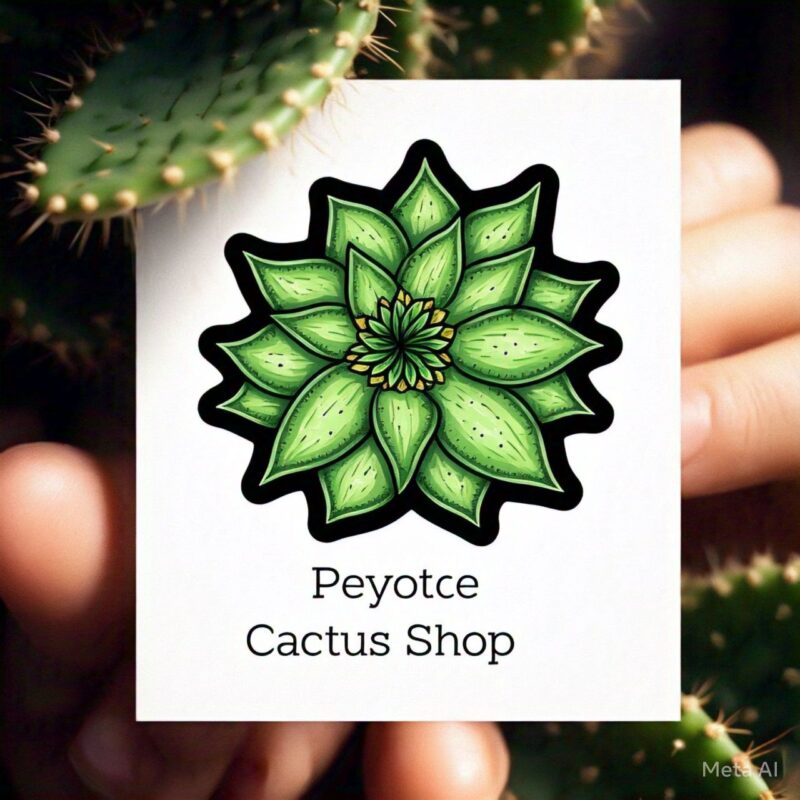Understanding the Peruvian Torch Cactus (Echinopsis peruviana)
(peyote cactus seeds) The Peruvian Torch Cactus, scientifically known as Echinopsis peruviana, is a fascinating species that has garnered interest for both its ornamental beauty and psychoactive properties. This cactus, native to the Andes mountains of Peru, is recognised for its tall, columnar structure and vibrant flowers. However, it is also known for containing mescaline, a powerful psychoactive compound that has been used in traditional ceremonies by indigenous cultures.
Characteristics of the Peruvian Torch Cactus – peyote cactus seeds
The Peruvian Torch can grow up to 3 meters tall and features multiple ribbed columns adorned with spines. Its flowers bloom at night, showcasing beautiful white or yellow petals that attract pollinators. The cactus thrives in well-drained soil and requires minimal water, making it an ideal choice for succulent enthusiasts.
Psychoactive Properties
Like peyote (Lophophora williamsii), the Peruvian Torch contains mescaline, which has been used for centuries in spiritual and healing practices. Mescaline is classified as a hallucinogen and has been studied for its potential therapeutic benefits, including treatment for anxiety and depression. However, the legal status surrounding mescaline-containing cacti varies significantly across different regions.
Legal Status of Peyote and Related Cacti
peyote cactus seeds: Legal Considerations
When discussing peyote cactus seeds, it’s essential to understand the legal landscape surrounding these plants. In the United States, peyote is classified as a Schedule I controlled substance under federal law, which means that its cultivation and use are heavily restricted. However, there are exceptions for religious practices among Native American tribes.
- peyote cactus seeds Legal Status: While it is illegal to cultivate peyote in many states, certain areas allow for its growth under specific circumstances. For example, in states like Oregon and New Mexico, individuals may cultivate peyote under religious freedom laws.
- Purchasing peyote cactus seeds: The legality of purchasing peyote seeds varies by state. While buying seeds can be legal in some places, growing them may not be. It’s crucial to research local laws before attempting to purchase or cultivate these seeds.
- peyote cactus seeds for Sale: Various online platforms offer peyote cactus seeds for sale, but buyers should exercise caution. Many vendors may sell seeds under different names to circumvent legal restrictions.
International Perspectives on Peyote Legality
Globally, the legal status of peyote varies widely:
- United Kingdom: In the UK, while the cultivation of peyote as an ornamental plant is permitted, extracting or consuming mescaline is illegal under the Misuse of Drugs Act.
- Canada: A recent development in Canada allows a company to legally produce and sell peyote as long as mescaline isn’t extracted from it. This reflects a growing recognition of the plant’s cultural significance.
- Australia: In Australia, peyote is classified as a controlled substance; however, certain indigenous groups may have exemptions for traditional use.
Understanding these legal frameworks is vital for anyone interested in cultivating or using peyote or related cacti.
Growing Peruvian Torch Cactus – Peyote Cactus Seeds For Sale
For enthusiasts looking to grow the Peruvian Torch Cactus at home, here are some tips:
Ideal Growing Conditions
- Soil: Use well-draining soil mixed with sand or perlite.
- Light: Provide full sunlight; these cacti thrive in bright conditions.
- Watering: Water sparingly; allow the soil to dry completely between waterings.
- Temperature: They prefer warm temperatures but can tolerate cooler conditions during dormancy.
Propagation Techniques – Peyote Cactus Seeds Legal
The Peruvian Torch can be propagated through seeds or cuttings:
- Seeds: Sow seeds in a well-draining mix and keep them moist until germination occurs.
- Cuttings: Take healthy cuttings from mature plants and allow them to callous before planting them in soil.
Conservation Efforts
Due to overharvesting and habitat loss, both peyote and the Peruvian Torch are at risk of extinction. Conservation efforts are crucial to protect these species:
- Sustainable Practices: Encouraging sustainable harvesting methods among collectors can help preserve wild populations.
- Cultivation Initiatives: Organisations are working to cultivate these cacti legally while educating the public about their cultural significance.
The Peruvian Torch Cactus (Echinopsis peruviana) stands out not only for its striking appearance but also for its psychoactive properties that connect it to ancient traditions. As interest in psychedelics grows alongside conversations about mental health treatment, understanding the legal landscape surrounding peyote cactus seeds becomes increasingly important.
Be the first to review “Peruvian Torch (Echinopsis peruviana) 20 seeds” Cancel reply
Related products
Lophophora Williamsii Seeds





Reviews
There are no reviews yet.